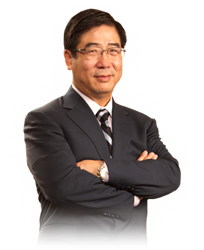
Dr. Kaixuan Liu
It’s important to understand that while pills and other medicines can help back pain, there’s an array of options. It’s wise to educate yourself on the pros and cons.
WEST ORANGE, N.J. (PRWEB)
September 25, 2019
When something hurts, it’s natural to want to pop a pill to quickly make the pain go away. But medicine for back pain – depending on the type and how long it’s taken – can come with side effects and potential dangers, according to Kaixuan Liu, MD, PhD, founder and medical director of Atlantic Spine Center.
“Some of the first questions back pain patients ask include, ‘What works? What should I be careful about?’” explains Dr. Liu. “It’s important to understand that while pills and other medicines can help back pain, there’s an array of options. It’s wise to educate yourself on the pros and cons.”
About 8 in 10 American adults will experience back pain at some point, according to the National Institutes of Health. But most of the time, back pain gets better within a few weeks, Dr. Liu says, and remedies such as exercising and applying heat or ice can produce dramatic improvements.
Medicines for back pain should only be considered when the pain is severe or lasting, he advises. “Medication can be a key component of treating or managing an occasional severe backache or dealing with recurring pain, but it’s crucial to use the right medications for your situation and do so in the safest possible way,” Dr. Liu adds.
Medications and what to watch for
Back pain medicine comes in several categories. Here, Dr. Liu explains the choices and what issues and side effects are common with each:
NSAIDs: Over-the-counter versions of nonsteroidal anti-inflammatory drugs are very popular for back pain and include ibuprofen and naproxen. Prescription versions offer higher doses. While often quite effective in easing pain, NSAIDs are so easy to obtain that many people can use too many. This can lead to side effects such as stomach pain, ulcers, gastrointestinal bleeding or kidney damage, Dr. Liu notes.
Muscle relaxants: Useful for acute back pain or muscle spasms, muscle relaxants are available by prescription and include cyclobenzaprine, tizanidine, baclofen and carisoprodol. Regardless of the specific muscle relaxant, however, all can cause drowsiness. “Don’t drive or operate heavy machinery until you know how they’re affecting you,” Dr. Liu says.
Opioids: These heavy-duty pain drugs come with a big caution sign, since opioid use and addiction have reached epidemic proportions in the United States, Dr. Liu notes. For brief periods, prescription opioids such as hydrocodone or oxycodone might be prescribed with careful monitoring by your doctor. Aside from a strong risk for dependency, opioids can also have side effects such as drowsiness and sedation, constipation, or allergic reactions such as itching or hives. Long-term opioid use can even make back pain worse by altering the nervous system to perceive heightened levels of pain.
Corticosteroids: Taken either by mouth or injected into your back, steroids are a powerful anti-inflammatory and produce lasting relief. But if used for long, steroids can produce weight gain, bone loss or problems processing blood sugar.
Antidepressants or antiseizure drugs: Obviously, these medications are typically meant to combat depression or seizures, but they can also be effective for nerve problems that contribute to back pain, calming irritation and relieving burning pain. Common side effects can include headaches, nausea, constipation, diarrhea, insomnia, fatigue or sexual side effects, so proceed with caution, Dr. Liu says.
Caveats to medication use
Dr. Liu says it’s important to keep in mind that medications for back pain can’t fix the underlying problem causing the pain – they can only temporarily relieve symptoms and improve how well you function.
“The source of your pain still hasn’t been addressed by taking pills or other medicines,” he says. “For this reason, other approaches such as physical therapy are key. They can target the problem causing your back pain in the first place.”
It’s also smart to track how well any back pain medicine works for you by keeping a pain diary, he says. Log when pain strikes, how long it lasts, and how severe the pain is. After medication dosages, write down how you feel and estimate how much pain relief you’re experiencing. Also keep track of side effects.
“Medicine for back pain should always be used with caution, but the right medication at the right time can be a godsend,” Dr. Liu says. “Make sure you stay in close contact with your doctor to ensure your medication is the best fit for you.”
Atlantic Spine Center is a nationally recognized leader for endoscopic spine surgery with several locations in NJ and NYC. http://www.atlanticspinecenter.com, http://www.atlanticspinecenter.nyc
Kaixuan Liu, MD, is a board-certified physician who is fellowship-trained in minimally invasive spine surgery at Atlantic Spine Center.
Share article on social media or email:

